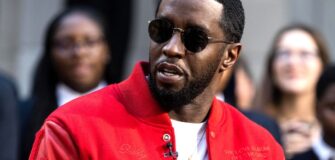Shirley Movie Review: Examining Portrayal of Black Historical Figures
Share

John Ridley’s “Shirley” delves into the historic 1972 presidential bid of Shirley Chisholm (Regina King), a groundbreaking figure as the first black woman elected to Congress and the first woman to seek the Democratic nomination for president.
Throughout the portrayal of her campaign journey, “Shirley” highlights Chisholm’s unwavering determination against the dual forces of misogyny and racism that sought to stifle her ambitions.
While it celebrates her resilience and political significance, the film falls into the familiar trap of Netflix’s formulaic storytelling, lacking depth and emotional resonance.
The film opens with Chisholm’s defiant presence in Congress, symbolized by a powerful image on the Capitol steps, where she stands tall amidst her predominantly white male peers.
Her strength and confidence are immediately evident as she confronts disparaging remarks with dignity and resolve.
However, “Shirley” quickly transitions to focusing on her presidential campaign, neglecting to delve deeply into Chisholm’s character beyond her political endeavours.
Regina King’s Performance and the Characterization of Shirley Chisholm
As Chisholm assembles her team, including her husband Conrad (Michael Cherrie), advisors Wesley McDonald Holder (Lance Reddick) and Arthur Hardwick Jr. (Terrence Howard), and the idealistic law student Robert Gottlieb (Lucas Hedges), the film highlights the obstacles she faced as a political outsider.
Despite her limited experience, Chisholm’s grassroots approach and belief in the power of the people drive her forward.
Yet, “Shirley” merely scratches the surface of her complexity, opting for a cursory exploration of her accomplishments rather than a nuanced portrayal of her character.
While the film admirably depicts Chisholm’s tenacity and vision, it ultimately fails to capture the depth of her humanity.
Even Regina King’s compelling performance cannot compensate for the script’s shortcomings, which prioritize events over character development.
Chisholm emerges as a symbol rather than a fully realized individual, leaving viewers with a sense of missed opportunity.
Despite King’s formidable talent, “Shirley” falls short in conveying the emotional depth necessary to truly honor its subject.



















